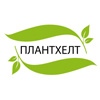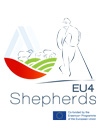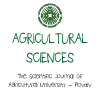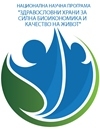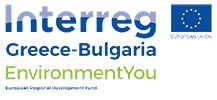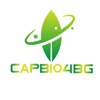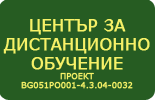Rural Tourism Destinations Management
|
Course title: |
Rural Tourism Destinations Management |
|
|
Course code: |
IFDST |
|
|
ECTS: |
5 |
|
|
In-class hours |
Lectures: |
30 |
|
Laboratory work/Tutorials: |
30 |
|
|
Self-preparation hours |
Practical training: |
45 |
|
Other: |
20 |
|
|
Total hours: |
125 |
|
|
Language: |
English |
|
|
Study cycle: |
BSc, Master |
|
|
Semester: |
Winter, summer |
|
|
Faculty: |
Faculty of Economics |
|
|
Name of the lecturer(s): |
Assoc. Prof. Ivanka Lulcheva, PhD |
|
|
Mode of delivery: |
Face-to-face, distance learning |
|
|
Prerequisites: |
No |
|
|
Learning outcomes of the course unit: |
The course will provide the basis for informed decisions on rural destination management is a subject of growing importance as destinations compete to provide the highest quality of experience for visitors and to manage the impacts of tourism on host communities and environments. This course is focused on: Understand the different perspectives of the definition of a tourist destination. Understand the importance and diversity of destination management organizations. Recognize the relevance of stakeholders, cooperation and collaboration, partnerships and networks in destination management. Identify the principles and practices that are essential in the context of strategic management of Rural tourist destinations. Recognize the importance of inventorying resources and developing tourism products within the framework of strategic management. Understand the implications of the life cycle of tourist destinations for their management. Understanding the challenges that the positioning and competitiveness of tourist destinations pose to management. |
|
|
Course contents: |
Contents of the program: 1. An Introduction to Destination Management. 2. Defining a Rural Tourism Destination; The Basic Elements of the Tourist Destination. 3. Defining Destination Management. 4. The Destination Management Organisation (DMO); How Does Destination Management Work? 5. Tourism Destination Management: Similar But Different to Other Industries. 6. Unique Features of the Tourism Industry. 7. Environmental aspects of sustainable tourism. 8. Maintaining and building quality of the landscape, in both urban and rural areas and preventing form ecological and visual pollution. 9. Sustainable Tourism Development – Theory and Practices. 10. Responsible Tourism Practices: Keys to Destination Sustainability. 11. Destination Life Cycle: Various Stages of Development. 12. Maximising Visitor Satisfaction: A Value Chain Approach. 13. The Situation Analysis: Assessing the Destination’s Competitiveness. 14. Setting a Vision, Goals, Objectives and Core Strategies. 15. Developing Rural Destinations Products. 16. Promoting Tourism SMME Development. 17. Vertical and Horizontal Linkages: The Co-ordinating Role of the Regional DMO. 18. Delivering the Strategy and the Rural Destination Management Plan. |
|
|
Recommended or required reading: |
Scheyvens, Regina, Tourism for Development: Empowering Communities, Publisher: Prentice Hall, (2002). Scheyvens, Regina, Inclusive Tourism Development, Publisher: Routledge, (2020). Eagles, Paul F. J., Tourism in National Parks and Protected Areas: Planning and Management, (2002). Goodwin, Harold, Responsible Tourism: Using Tourism for Sustainable Development, Wolvercote, Oxford: Goodfellow Publishers Ltd, (2016). Richard & Julia Sharpley, Rural Tourism: An Introduction, Publisher: London; Boston: International Thomson Business Press, (1997). Butler, Richard, C. Michael Hall & John Jenkins, Tourism and Recreation in Rural Areas, Publisher: Wiley, (1998/2001). Oriade, Ade & Peter Robinson, Rural Tourism and Enterprise: Management, Marketing and Sustainability, Publisher: CAB International, (2017). |
|
|
Planned learning activities and teaching methods: |
Monological explanation (lecture, presentation). The lectures are supported by literature-based material and PowerPoint presentations. Dialogue methods (conversation,discussion,brainstorming) The students develop assignments to specific topics. |
|
|
Assessment methods and criteria: |
Final assessment is given based on the results of written exam (50%), course project (30%) and exercises evaluation (20%). |
|
 - Events on the occasion of the 80th anniversary of AU
- Events on the occasion of the 80th anniversary of AU
